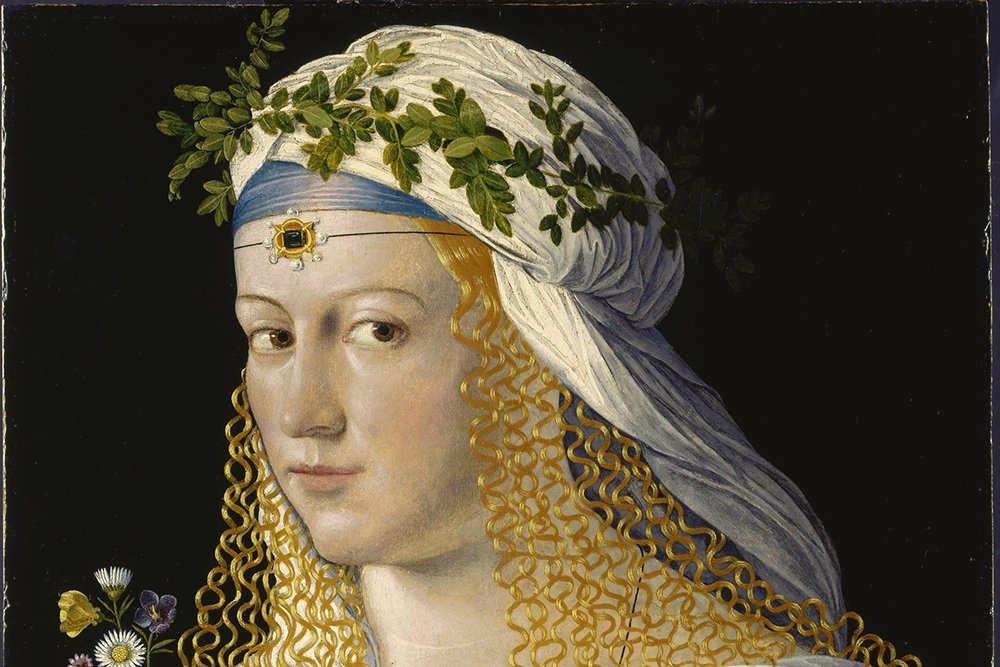
The Borgia family are infamous. Known for dominating the Renaissance period, being associated with murder, greed and deadly, treacherous power.
Lucrezia Borgia is inextricably tied to the crimes of her family, and her three marriages certainly gained more power for the family, but whether or not the reputation is deserved, is intensely debated by historians.
The illegitimate daughter of Cardinal Rodrigo Borgia, later Pope Alexander VI and his mistress, Vannozza Cattanei, Lucrezia was beautiful. She has long been portrayed as a femme fatale, someone who used her looks and guile and who manipulated, murdered and was an active member in her family's incestuous pastimes. Modern historians claim that she has been badly treated by history and was, in fact, a victim of her own family's machinations.
Lucrezia spoke Latin, Greek, 色中色, French and was proficient in art, music and singing. She was highly articulate and well educated, famed for her beauty and revered for her intelligence. After her first marriage was annulled, she gave a short speech and one ambassador described it as being: "with such elegance and gentility that not even Cicero could have spoken with more precision and grace."
Her father arranged two engagements for her before she was even a teenager, annulling each one for a greater chance of political alliance. As Cardinal Ascanio Sforza said: "There are many who long to marry into the Pope's family via his daughter, and he lets many think they have a chance. Even the king of Naples aspires to win her hand!" In 1493, at the age of 13, she is married to the Duke of Milan in a powerful alliance for the Borgia family but, when he sides with Charles VII of France against the Borgias, in 1494, Cesare, her brother, tells her that he is planning to kill her husband. Lucrezia warned him and he fled, spreading rumours about Lucrezia herself and the Borgia family. In 1497, Pope Alexander VI had the marriage annulled on the grounds that it had never been consummated. However, soon after, Lucrezia was kept in a covenant and clearly she had consummated something with someone as, on the day that her annulment was granted, she was alleged to be 6 months pregnant.
At first, her pregnancy was denied but three years later, they revealed her son Giovanni to the world and admitted, first that he was the incestuous son of her brother Cesare and, years later, that he was the illegitimate son of her own father. However, later historians believe that the child was actually the result of her father's liason with a servant girl.
In July 1498, she was married to Alfonso, Duke of Aragon, and the heir to the throne of Naples. They had a child together and were said to have been genuinely happy and in love. But soon, the Borgias decided to pursue a relationship with France. Lucrezia's marriage was now in the way, so Pope Alexander VI and Cesare put an end to it. On July 15th 1500, Alfonso was stabbed several times... but he survived, at least until 18th August when Cesare's men strangled him to death. Lucrezia had moved into the Vatican in an attempt to nurse her ailing husband back to health. This was seen as scandalous and as rumours flew that Cesare was planning to finish the deed, so rumours began to spread that the Pope's daughter was promiscuous and was leading a sinful sexual life.
In 1502, at the age of 22, Lucrezia married Alfonso d'Este, Duke of Ferrara, finally escaping the machinations and power plays of her family. Alfonso d'Este whisked her away to Ferrara, away from Rome, and there Lucrezia is said to have found peace and happiness, having several children, most of whom did not survive infancy. In 1503, her father died and Lucrezia finally escaped her family's reputation and icy grip. The Borgia family lost most of its power and she began to thrive, especially as in 1505, Alfonso's father died and they became the Duke and Duchess of Ferrara. She gained a reputation as a patron of the arts and she and her community prospered.
In 1512, news reached her that Rodriguez, her son by Alfonso of Aragon, had died, and she withdrew from public life. Turning to religion for the rest of her life, she died after giving birth to a stillborn daughter on 24th June 1519. She was 39.
Her reputation is murky, on one hand she may have had an illegitimate, incestuous child and attended the Banquet of Chestnuts, an infamous orgy, but modern historians are trying to spin the tale to show how she was only a pawn at the hands of her scheming father and brother.